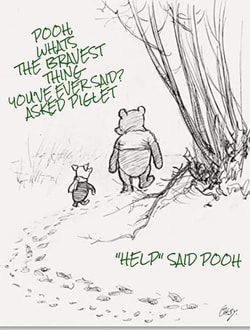 Caregivers, we are pros at helping others, but do we seek help when we feel it’s necessary? The answer is most likely no. We thrive on being the helper and making the lives of others better and happier. From what I’m seeing working with myriad organizations during Covid, it’s not only others who need help. It’s all of us. Covid has robbed us of happiness, wellness, and optimism. We have lived in fear for the last couple of years and now, it’s time to kickstart our own happiness, wellness and optimism and share in life’s abundance. Living the Standards of Self-Care (eating nutritious food, sleeping well, exercising on a regular basis, supporting each other and mapping out our own goals for the future) need to be applied at the starting gate. After we have our Self-Care Plan to incorporate those behaviors and actions into our daily lives, it’s time to assess whether or not we need professional help to move us further along on the path to wellness. Contrary to what some believe, asking for help is a strength, not a weakness. Along with growing, changing and thriving, asking for help does the following: Asking for help surrounds us with people who can help us feel better and promote our ability to heal and thrive. Asking for help connects us to others, creating stronger communities and helps to build a healthier community, the workplace environment in particular. Asking for help allows us to learn new coping skills to strengthen our resilience. Asking for help shows courage and that we are strong enough to admit we don’t have all the answers. Frank Oshberg, M.D., shared the following to help us understand compassion fatigue and how it takes hold of our body, mind and spirit: Compassion fatigue develops over time – taking weeks, sometimes years to surface. Over time, your ability to feel and care for others becomes eroded through overuse of your skills of compassion. You also might experience emotional blunting, lessening your usually high levels of compassion and empathy. If this sounds familiar to you, take the advice of Pooh, the world’s most delightful bear, and head in the direction of getting the help you need to live your best life. You won’t be sorry. Comments are closed.
|
Thoughts From Our FounderCheck here for updates and thoughts from CFAP founder Patricia Smith. Archives
October 2022
Categories |
|
©2025 Compassion Fatigue Awareness Project
The CFAP materials found on this website are copyrighted, but may be freely copied and posted as long as (a) "Compassion Fatigue Awareness Project©" is credited with its logo intact, (b) no text changes are made, and the (c) materials are not sold or in any way presented where people are charged for entry or the materials. |
 RSS Feed
RSS Feed